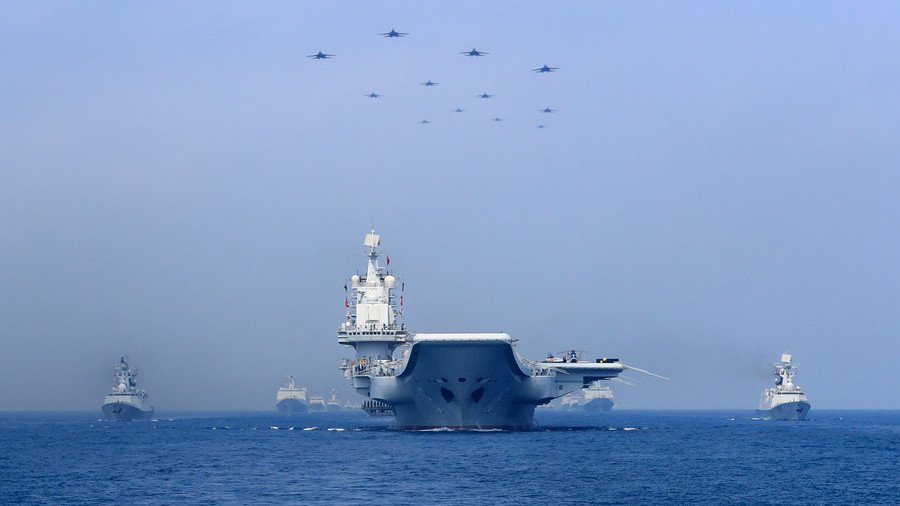Chinese hackers stole US sea warfare data, including on supersonic missile – report

Some 614 gigabytes on a secretive US Navy project was reportedly stolen from a contractor, who kept the data unclassified despite the sensitivity of the information, which includes the Pentagon’s plan for a supersonic missile.
Breaches that could deal a heavy blow to the US military’s bid to dominate the waters near the disputed islands in the South China Sea took place at least twice, in January and February this year, US officials told The Washington Post.
The data that was compromised by what officials believe were Chinese hackers working for the state intelligence agency concerns the Sea Dragon project, which is aimed at “integrating an existing weapon system with an existing Navy platform.” The hackers reportedly gained access to signals and sensor data, as well as submarine radio information. This data can provide a valuable insight into the distance that US submarines may be able to detect their Chinese adversaries. According to the investigators, the operatives of the Chinese Ministry of State Security also obtained the Navy’s submarine development unit library, which offers a glimpse into hundreds of mechanical and software systems used by the Navy.
Among the data seized was also information on the US Navy's plans to mount a supersonic anti-ship missile on a submarine, The Post reported. It did not provide any specifics on the project, saying it was asked by the Navy to withhold the details from the report, so as not to damage US security further.
For the importance of the materials and the potential damage their loss can cause, investigators say it took the intruders surprisingly little effort to pilfer them, since the network that stored the data was unclassified.
The investigation into the breach, which is being jointly conducted by the Navy and the FBI, is currently underway, The Post reported. The incident reportedly caught the attention of US Defense Secretary Jim Mattis, who sounded the alarm over the military contractors’ security against cyber-attacks, tasking the Pentagon’s inspector general’s office to look into the issue.
The contractor that was subjected to the attack was not identified in the report, but it was revealed that its work was commissioned by the Naval Undersea Warfare Center, the Navy’s research, development, test and evaluation center for submarines, as well as offensive and defensive undersea warfare.
The impact of the hack on US naval capabilities has been evaluated by the Pentagon’s Damage Assessment Management Office, which has refused to comment on its findings, however.
The revelation comes as the two countries vie for dominance in the South China Sea. In recent months, there has been a flare-up in tensions, as Washington repeatedly sent its warships to sail through the disputed waters, drawing ire from Beijing.
In late May, US guided-missile destroyer the USS Higgins, and the USS Antietam, a Ticonderoga-class guided missile cruiser, came within 12 nautical miles of the largely uninhabited Paracel Islands, which China and Vietnam both lay claim too. The Chinese Defense Ministry condemned the arrival of the US fleet, saying that its increasingly frequent ‘freedom of navigation’ maneuvers are provocations that encroach on its sovereignty.
Beijing has been building artificial structures and deploying military infrastructure on the Paracels, as well as on the Spratly Islands, including anti-aircraft and anti-missile systems.
As tensions continue to mount over the resource-rich South China Sea, which is subject to territorial claims by a number of countries, such as Vietnam, the Philippines, Indonesia, Malaysia, Brunei and Singapore, the Pentagon vowed last week to “compete vigorously”with China in the waterway.
It came shortly after the US disinvited China’s navy from participating in the Pacific Rim 2018 naval drills, citing its “continued militarization of the South China Sea.”
















